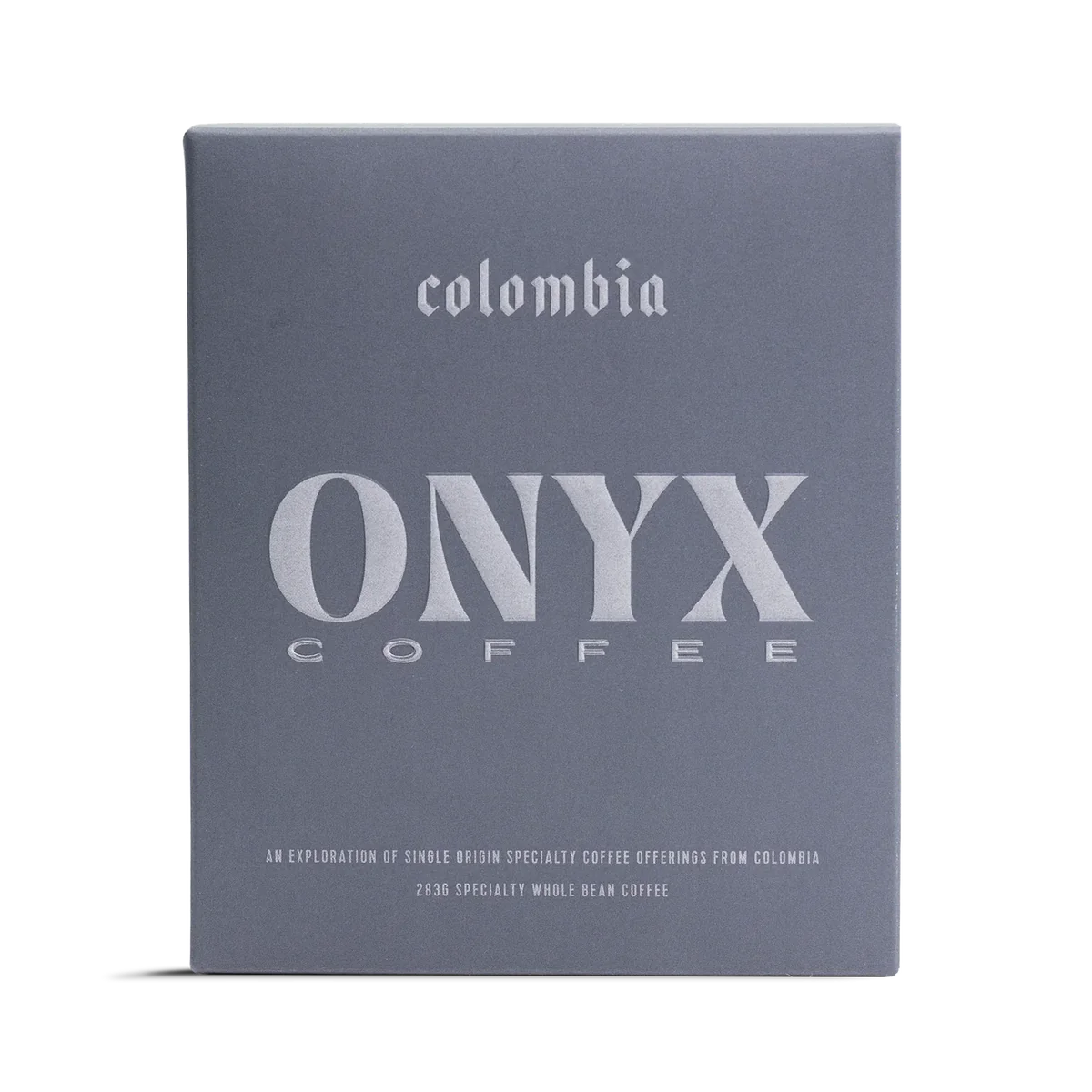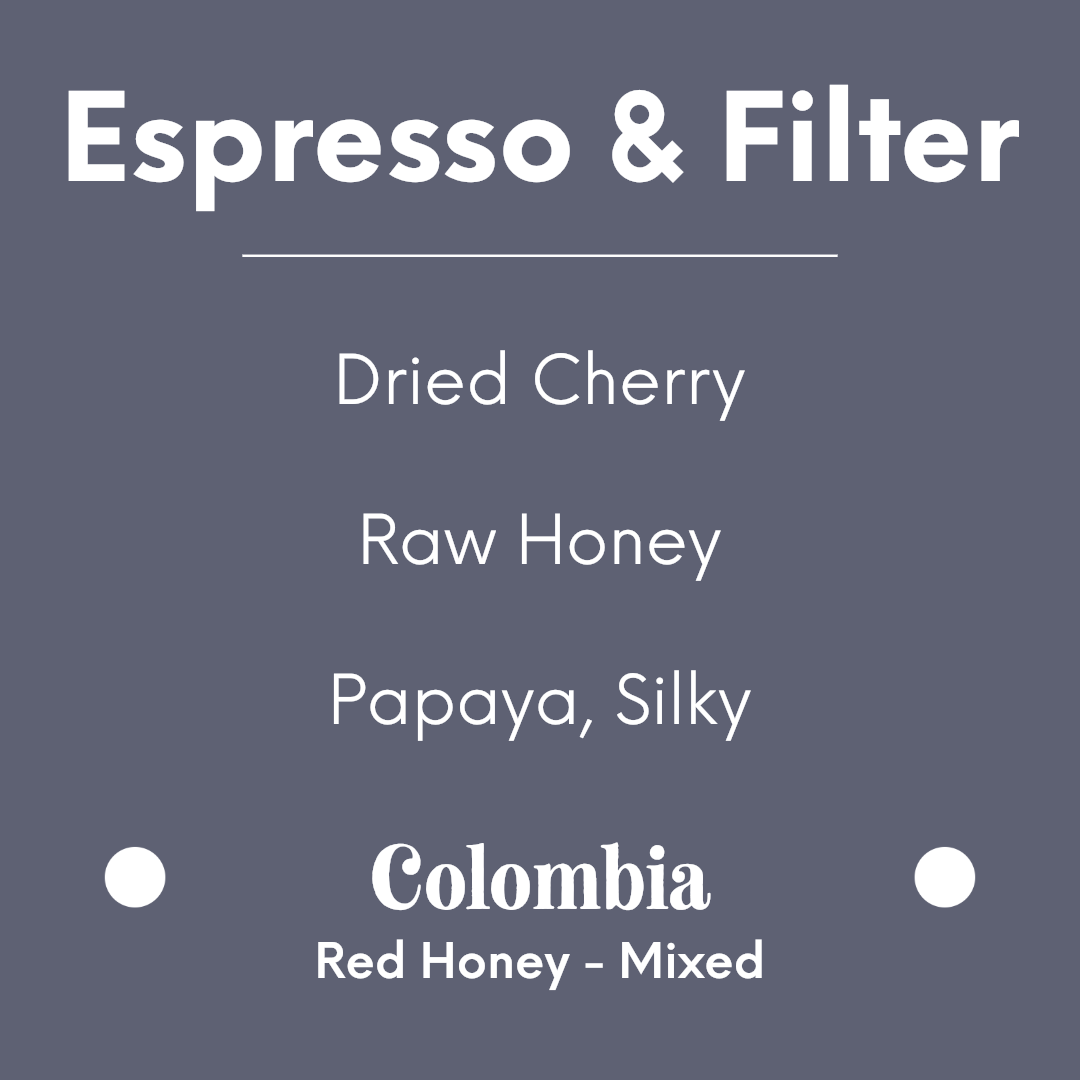ONYX COFFEE LAB
ONYX - Colombia Aponte Village Honey - Colombia - Red Honey - Mixed
ONYX - Colombia Aponte Village Honey - Colombia - Red Honey - Mixed
Couldn't load pickup availability
| Tasting Notes: | Dried Cherry, Raw Honey, Papaya, Silky |
| Origin: | Colombia |
| Process: | Red Honey |
| Variety: | Mixed |
| Roast Level: | AGTRON #74 Light |
| Roast Date: | December 2, 2024 |
ONYX Coffee Lab is located in Rogers, United State
From ONYX
A stalwart offering year after year, this macro-lot from the Aponte Village in Narino is intensely sweet in the cup, balanced by a tart, citric acidity. Processed in a unique way, this red-honey is partially dried before it is depulped, giving it a layered, fruited complexity and heavy tactile.
APONTE VILLAGE
The old colloquialism is that it takes a village to raise a child… It also takes a village to produce the macro-lot that is our Aponte Village offering. Aponte Village resides at a mountainous 2100m in the lush region of Nariño. Each year we work closely with our friend Pedro at Pergamino coffee to cup through single producer lots in order to build a large Aponte lot that we feel fits the best cup profile of the region. This year we decided to dig into a deeper level and cup each single producer lot that was flagged for us, getting detailed sensory details on each component. This allowed us to build our full container Aponte lot bit by bit… adding a fruity and wild lot here, and a clean and juicy lot there. Altogether we cupped through thirty-eight single producers lots, eighteen of which were selected to comprise our Aponte offering for this season. Throughout the season, we’ve cupped table after table of these lots, taking care to select only lots that cupped above an 86 on the SCA form, ensuring our macro-lot would arrive at our quality standards. All these producers are located within the Juanambuú canyon, belonging to the indigenous community of the Inga. Their history spans back to the Inca Empire, who colonized the southern region of Colombia in the late XIV century, a bit before the Spanish came. The land here is communal, and its population is ruled by a “cabildo,” a group of elders who ensure that their ancestral laws and traditions are upheld.
Usually, coffee in Colombia is fermented and washed after it’s picked and de-pulped. In this case, the coffee was dried before being washed. The intense fermentation process that occurs when coffee is dried without washing its mucilage (honey-like substance around the seed) leads to a cup profile of intense ripe red fruit that reminds us of cherries and strawberries. This process is very delicate, and if done incorrectly or without the proper conditions can lead to vinegar notes and a terrible cup of coffee. Weather in this region is perfect for this type of drying, as the heavy and cold winds that cross the canyon permit an even and fast drying process of the coffee seed, even covered by its mucilage.
Share




